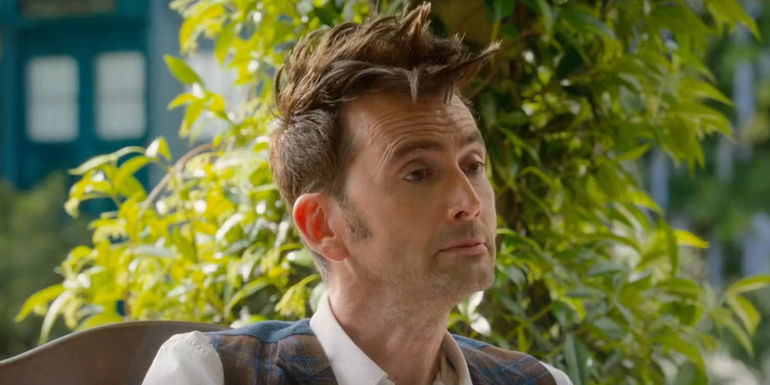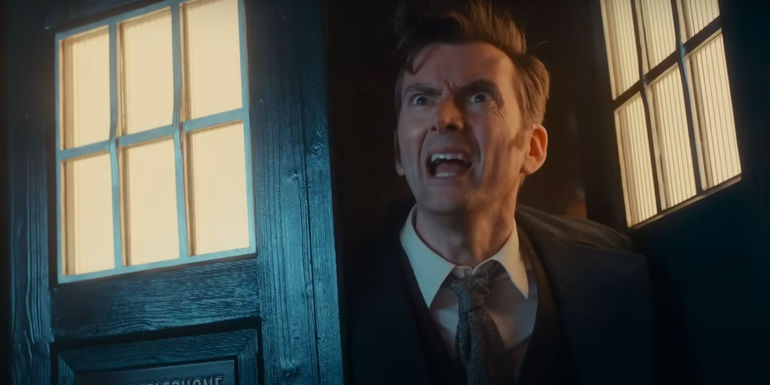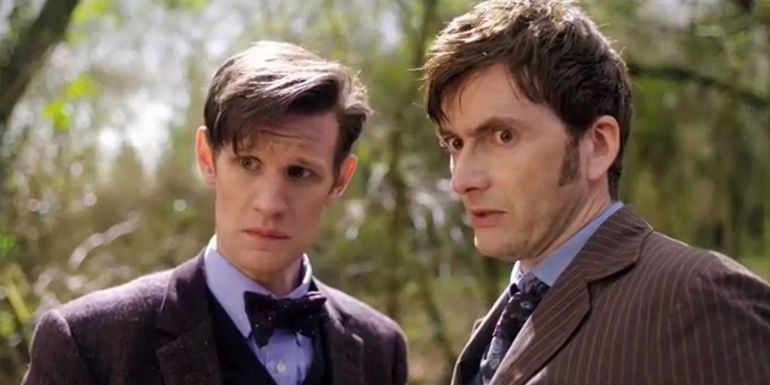
Doctor Who's Bi-Generation Plot Hole: A Comparison to the MCU's Avengers

Doctor Who has introduced a new concept of bi-generation, resulting in a plot hole that parallels an issue in the Marvel Cinematic Universe. This article delves into the implications of bi-generation in Doctor Who and compares it to the plot hole created by the introduction of the Avengers in the MCU.
The Bold Introduction of Bi-Generation in Doctor Who
Doctor Who has made a change to the show's lore that creates an ongoing plot hole, resulting in an issue reminiscent of one brought about by the Avengers' introduction to the Marvel Cinematic Universe. Of all the additions to the world of Doctor Who over its 60-year run, the Doctor's new ability to bi-generate is one of the boldest. While it opens up different avenues for storytelling, bi-generation creates a very specific problem as well.
David Tennant and Ncuti Gatwa's Doctors undergo bi-regeneration in Doctor Who's "The Giggle"
Showrunner Russell T Davies introduced the concept of bi-generation during the ending of the Doctor Who 60th-anniversary specials, in the episode 'The Giggle.' The process caused David Tennant's Fourteenth Doctor to split into two separate beings. As a result, the new form of regeneration allowed Fourteen and Fifteen to exist autonomously from and simultaneously with one another — a first in Doctor Who's history. For all the excitement caused by Doctor Who's shocking bi-generation twist, it will invariably leave the same question on everyone's lips during Doctor Who season 14 and beyond.
Ncuti Gatwa as the Fifteenth Doctor in Doctor Who 60th Anniversary Special Part 3 The Giggle
Doctor Who's Bi-Generation Dilemma
The Fourteenth Doctor now lives on Earth and has a TARDIS. When the MCU released its first team-up movie in 2012, The Avengers, the cinematic universe immediately felt safer due to the presence of Earth's newest defenders. The issue was, for every non-Avengers MCU movie that followed, it became unclear as to why the superhero team wasn't showing up to deal with the threat at hand. Instead, a flimsy explanation had to be written into many of the standalone MCU movies to explain why the Avengers were unavailable to assist. In Doctor Who, there are many threats to Earth, and the planet is ill-equipped to defend itself against significantly more advanced races. As a result, the Doctor often steps in to save the day. If the Doctor is ever absent during these emergencies, it can be explained by the reasonable fact that they can't generally be in two places at once. Now, in the wake of bi-generation's introduction to Doctor Who, the Fourteenth Doctor is always on Earth with a TARDIS. So, just as the citizens in the MCU wonder why the Avengers aren't helping, those in the world of Doctor Who will have similar queries regarding the Doctor's whereabouts.
David Tennant as the Fourteenth Doctor sitting and looking satisfied in Doctor Who special episode The Giggle.
Doctor Who didn't have to introduce bi-generation. The MCU's plan to bring the Avengers together was inspired by the same event in the Marvel comics. Leaving the Marvel heroes as separate entities would have meant straying from the source material being used to bring their cinematic universe to life. As a result, the MCU has simply lived with the plot hole the story has caused so that they can continue to reuse arcs from the comics. Essentially, bringing the Avengers together was an inevitability and unavoidable. Doctor Who is not restricted by source material, and the canon comes directly from the show's writers. This fact makes the issues that bi-generation cause worse than those experienced in the MCU by the bringing together of Tony Stark and his team. Doctor Who could have avoided introducing the concept of bi-generation to the franchise, but instead opted to make the process canon. The fact that the plot hole created by bi-generation could have been prevented makes it worse than the inconsistencies in the MCU.
David Tennant as the Fourteenth Doctor leaning out of his TARDIS in the 2023 Children In Need special looking confused
Navigating the Bi-Generation Plot Hole
Doctor Who has done multi-Doctor stories before, but their relative scarcity is often due to very specific in-universe reasons. For instance, the event can cause a risk to the fabric of reality or the emergence of a paradox whenever the Doctor crosses their own timeline. As a result, there has always been an overall explanation as to why Doctors don't team up regularly. Bi-generation doesn't circumvent this logic, but it does provide a workaround. David Tennant's Fourteenth Doctor and Ncuti Gatwa's Fifteenth Doctor are now separate entities due to the events shown in 'The Giggle.' As a result, they're not beholden to the same rules as Doctors from the same timeline. Therefore, nothing is preventing Fourteen from showing up to the same disaster as Fifteen so they can work together. Alternatively, Fourteen is also technically capable of stepping in and working alone in Fifteen's absence, and the second TARDIS makes this true for anywhere across space and time. Bi-generation is an innovative and thrilling way to keep Doctor Who moving forward, but it has also partially undone decades of careful writing. While the framework to keep various Doctors working largely in isolation is still intact, there are now more opportunities than ever for multi-Doctor stories that involve the Fourteenth iteration. However, bi-generation also creates more possible issues than ever, especially if the new 'main' version of the Time Lord is ever absent in future episodes of Doctor Who.
The Tenth and Eleventh Doctor looking perplexed in


















